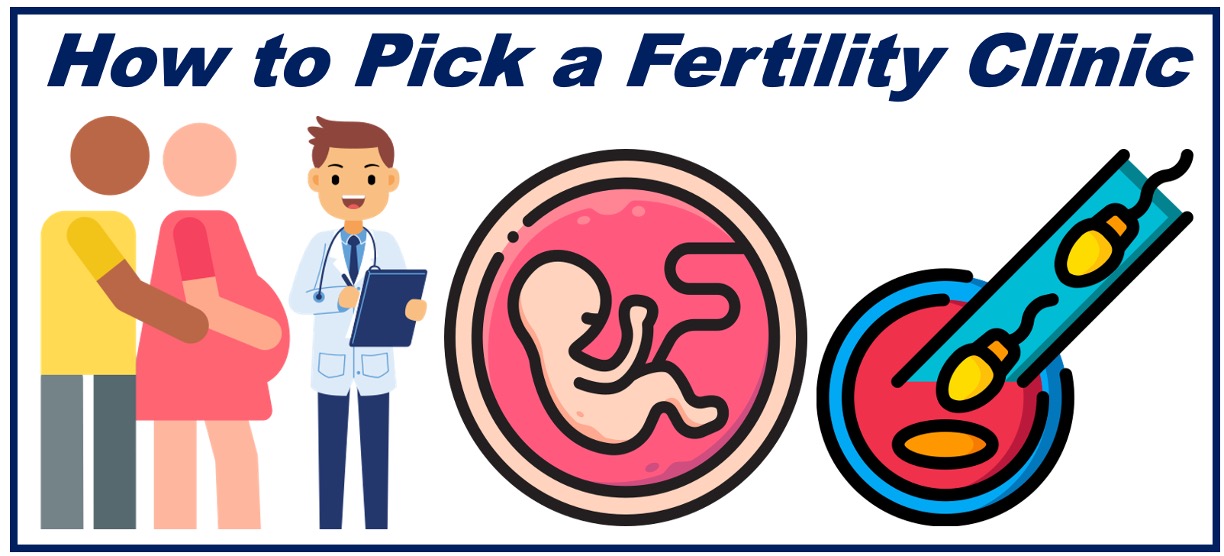Choosing a clinic in an age of social distance and hyper-sanitary measures is difficult. Even during a pandemic, you want a customized, you-centered birthing experience.

Fertility Clinic Selection
Ask yourself these questions while searching for reviews, websites, and references of fertility clinics.
1. Are Fertility Physicians Board-Certified Endocrinologists?
Do physicians have the best infertility and reproduction training? Are they board-certified REIs? Some practices use “fertility specialists” to designate someone without these credentials, and that won’t help you reach your goals.
Why choose an REI doctor? The experts’ extensive medical training gives them the greatest tools to assess your situation and recommend future moves. In addition to medical school and residency, students must undergo three years of reproductive endocrinology and infertility training.
After 11 years of training, students must pass written and oral examinations to be “board certified.”
Board-certified Reproductive Endocrinologists are your family-building elite.
2. How Many Doctors Are There? What’s The Office Count?
They’re related. More physicians mean more offices for a practice. Personal preference and proximity are factors. Office location is crucial when choosing a clinic. Some people won’t drive for two hours.
Some have no choice. Some clinics, like Illume Fertility, allow you to undertake morning monitoring elsewhere. (The clinic must cooperate with Illume Fertility to perform all blood work and procedures on their behalf.)
Let’s discuss practice size. Multi-vs. Single-provider has perks and downsides. Do you prefer one doctor, a smaller office, and fewer patients, or numerous physicians, larger offices, and more patients?
Smaller practices may have the advantage of knowing everyone. Small practices may have awkward appointment hours and fewer resources (on-site labs, nutrition, acupuncture, support groups, etc.).
Larger practices with many physicians may provide a convenient office location and/or appointment hours, extra resources (onsite labs, nutrition, acupuncture, support groups, etc.), and a team of practitioners instead of one. Larger practices may make patients feel like a number or introduce fresh faces. If the huge practice is good, you won’t feel like a number.
3. Is The Fertility Clinic An Expert?
Centers of Excellence excel in expertise, results, and patient management. This accreditation is highly sought after and only earned by high-performing practices. Multiple causes…
- Because a badged facility is more likely to help you develop a thriving family, and…
- Insurance companies like these clinics.
4. What Treatments And Tests Do They Offer?
If you’re new to infertility, you may be shocked to learn there are alternatives to IVF. It has the best success rates but is intrusive and costly.
Choose a facility that provides a range of therapies, not just one. Timed intercourse, IUI, surrogacy, and cryopreservation are alternative procedures.
Your doctor and/or fertility team should get to know you at your initial session. Once they know your narrative and illness, they might prescribe a family-building game plan based on their therapies.
First-round treatments might include timed intercourse or intrauterine insemination, as in my case (IUI). These alternatives include egg-production medications and ovulation triggers. Timed intercourse is private, on-the-clock intercourse.
IUI includes injecting a partner or donor sample into the uterus to fertilize an egg.
Even if you don’t need timed intercourse or IUI, it’s helpful to know the clinic provides it. A clinic with several treatment alternatives will increase your chances of success and satisfaction.
Tests Galore
Modern, state-of-the-art clinics include testing. Pre-genetic testing should be available. This test determines if you or your partner are genetic mutation carriers.
Pre-implantation genetic screening (PGS) is another crucial test. IVF embryos are biopsied (safely) and checked for chromosomal numbers. This test can reveal chromosomal abnormalities. Your doctor and embryologist use this information to identify the best embryo to transfer.
Interesting related article:

